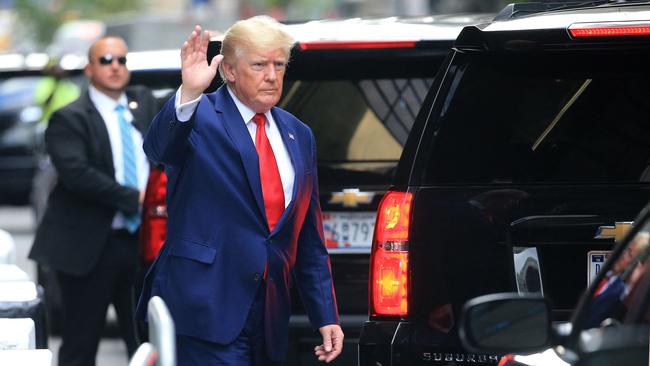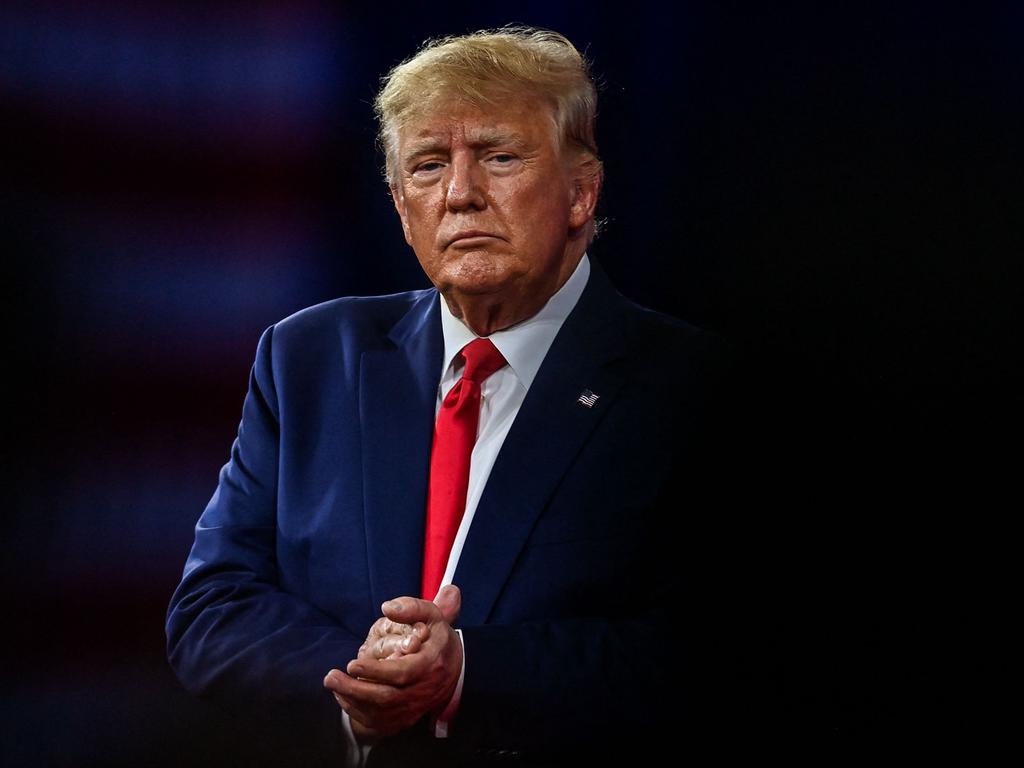A Manhattan grand jury has indicted Donald Trump. What happens now?
Donald Trump faces political and legal uncertainty following his indictment over paying hush-money to a porn star | ALL YOUR QUESTIONS ANSWERED

A Manhattan grand jury on Thursday voted to indict Donald Trump for his role in paying hush-money to a porn star on the eve of the 2016 election.
Mr. Trump has denied wrongdoing and has said the probe by the office of Manhattan District Attorney Alvin Bragg, a Democrat, is politically motivated.

What happens next?
The indictment will kick off a process in which Mr. Trump will likely travel to Manhattan to face the charges. An indictment and an arrest warrant are typically filed under seal with the court before becoming public. Prosecutors will now likely negotiate with Mr. Trump’s lawyers a time and date for his surrender. The indictment will remain sealed until after Mr. Trump was formally arrested and booked.
“We won’t see a copy of that indictment or know definitively what the charges are until he is arraigned by a judge,” said Karen Agnifilo, a former prosecutor in the Manhattan district attorney’s office.
What happens if Mr. Trump surrenders? Would he be arrested?
A defendant who is allowed to surrender typically reports at an agreed-upon date and time to the Manhattan district attorney’s office, which is attached to the Manhattan criminal courthouse. Detective investigators from the district attorney’s office then arrest the defendant. This approach avoids the public spectacle of an arrest elsewhere — and the perp walk that often comes with it.
If he were to surrender and be arrested, Mr. Trump would likely have his fingerprints scanned, his photograph taken for a mug shot and be interviewed by detective investigators who would make an arrest report.
“And he would be issued a rap sheet reflecting this arrest, like every other person who is arrested and fingerprinted in this country,” said Ms. Agnifilo.
After being processed, defendants are typically taken to a holding cell next to a courtroom to await arraignment. Mr. Trump would likely receive some special accommodations out of security concerns and skip any wait on his arraignment, Ms. Agnifilo said.
Donald Mihalek, a retired senior Secret Service agent, said the Secret Service and its agents are obligated under federal law to protect the former president in all settings, so they would be with him throughout the booking process and arraignment. The Secret Service would also likely turn the courthouse into a protective zone and bring Mr. Trump through a secure access point, said Mr. Mihalek, who served on the security details of former Presidents George W. Bush and Barack Obama.
“My experience tells me, working with the court, the U.S. Secret Service would want this to be a well-choreographed event, probably with as little fanfare as possible and probably done as quietly as possible,” he said.

Would Mr. Trump be handcuffed?
That is what typically happens when a defendant surrenders. However, it is unclear if an exception would be made in Mr. Trump’s case. Mr. Mihalek said that the Secret Service, court officials and the district attorney’s office would likely discuss ahead of the surrender whether Mr. Trump could be handcuffed. Ms Agnifilo and Mr. Mihalek said that they thought handcuffing would be unlikely.
What would happen in court?
During a court appearance, a judge would ask Mr. Trump to enter a plea to the charges in the indictment. Mr. Trump, as most defendants, would almost certainly plead not guilty. Prosecutors and Mr. Trump’s lawyers might also discuss scheduling matters and the process by which prosecutors would hand over evidence, known as discovery, to the defense.
If charged with a low-level felony, Mr. Trump would likely be released on his own recognizance. He could be back in his Florida residence that same day.
When would Mr. Trump go to trial?
Cases in New York take months, and often more than a year, to go to trial. While the case is pending, lawyers would likely file legal briefs and argue over what evidence jurors would be allowed to hear.
Mr. Trump’s lawyers almost certainly would seek to have any case dismissed before trial, on the grounds that the charges are untimely and improper. They could also file motions asking the trial be held outside Manhattan because of what Mr. Trump may perceive as jurors who might judge him unfairly for political reasons.
Would Mr. Trump spend any time in jail?
Probably not, say former prosecutors. After his arrest, he would likely be released on his own recognizance. Any charges he faces are expected to be relatively low-level offenses, so even if convicted, Mr. Trump, as a first-time offender, would be unlikely to face prison time, lawyers said.
WSJ





To join the conversation, please log in. Don't have an account? Register
Join the conversation, you are commenting as Logout